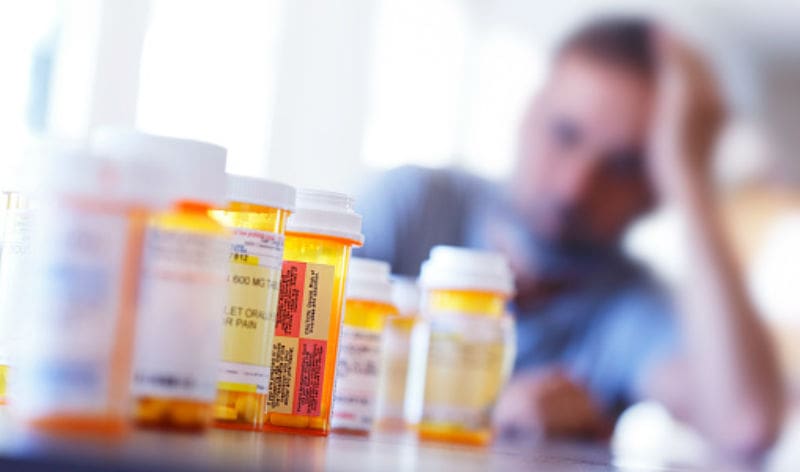-
Call Us: 0330 111 2015


Jump to a section ▼
› Introduction
› Most commonly abused prescription drugs
› What is classed as prescription drug abuse?
› Mixing prescription drugs
› Signs & symptoms of prescription drug addiction
Speak with our admission team
Call now on 0330 111 2015The top 5 most commonly abused prescription drugs in the UK fall into 5 categories – Benzodiazepines, opioid and opiate pain killers, ADHD medications, gabapentinoids and Z- list medications.

For each category there are variations in their effects, dosages, potency, drug classifications and side-effects.
Prescription drug abuse is very common, not only in those who abuse drugs in general but also in those who are prescribed medications for a genuine problem or condition.
Certain prescription drugs are more commonly abused than others. This is either due to their effects or due to their addictive properties. The most commonly abused prescription drugs are those that produce BOTH sought after effects and are addictive.
These particular prescription drugs not only are abused recreationally but also have the potential to create a full blown addiction.
There are 5 types (groups) of prescription medications that are most commonly abused for their effects. For each type there are variations that range in potency and addictiveness/abuse potential.
Prescription drugs have a list of conditions that they are licensed to be prescribed for. There are also indications for off label use, which is at the physician’s discretion.
Methods of administration can vary for each individual prescription drug. i,e oral tablet, oral solution, sublingual, transdermal patch and intravenous (IV).
Prescription drugs that are used to treat around the clock conditions also come in quick release and slow release forms. Both have the potential for abuse
The more potent the prescription drug, the higher the schedule of drug classification and the more pronounced the effects are.
The indications for prescription drug abuse include:
There are other ways in which prescription drugs can be abused but these are the most common methods.
All methods of abusing prescription drugs can not only lead to drug dependence and addiction but also put your life at great risk
 Detox safely in our medical facility
Detox safely in our medical facility
 Free collection
Free collection Future-proof
Future-proofMixing prescription drugs together, without the knowledge of your doctor or prescriber, is not only classed as abuse but is extremely dangerous to both your physical and mental well being.
Many individuals who take prescribed drugs do not read the pamphlet accompanying the medication in full, or choose not to adhere to the advice given.
The most common method of abusing prescription drugs is continuing to drink alcohol when it is advised not to. Drinking alcohol with a prescription drug that has depressant/sedative properties is EXTREMELY dangerous and can lead to overdose and death.
You may think that you know your limits and that you are in control. The reality is that the dangerous effects of mixing prescription drugs and alcohol together are not always immediate.
Others may mix prescription drugs together in order to increase their euphoric, stimulant or sedative effects. Certain medications can interact with others, leading to disastrous and even deadly consequences.
It is always important to be brutally honest with your doctor about any medications you are taking AND if you have an alcohol or drug problem, past or present. Only then can your doctor make a fully informed decision as to how to proceed, ensuring your safety is paramount.
Prescription drug addiction is not always easy to identify to the untrained eye. This is because some individuals do actually adhere to their prescription but can still have a drug dependence or addiction and not even realise it.

Struggling with prescription drug addiction? Take action today…
For more information speak to our team about how we can help you grow beyond addiction and find residential treatment programmes today.
References
Start your recovery journey by calling our admissions team today.
Confidential. Straightforward. Friendly.